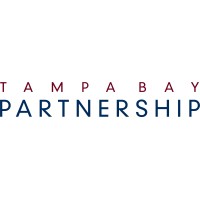
Tampa Bay Partnership
The Tampa Bay Partnership is a coalition of regional business leaders, joined by a shared commitment to improving the personal and economic well-being of Tampa Bay residents. Formally incorporated in 1994, and re-established in 2016 as a regional research and public policy organization, the Partnership works with the region’s top employers, along with a diverse group of government and nonprofit partners, to identify and address the toughest challenges facing our community, including transportation, talent, racial equity and other emerging issues.






